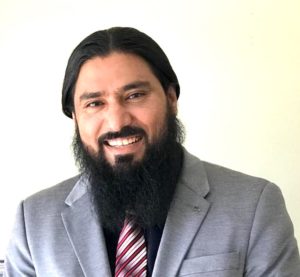
OUR VISION
To lead the future in the production of sustainable locally grown ‘better than organic’ food.

OUR MISSION
To provide high volumes of quality, nutritious food and viable solutions to food security, while reducing the environmental impact of current farming methods.
THE AGRIPONICS TEAM
ROBERT LITTLE, Founder and CEO of Agriponics, Co-founder of Plant Castle Farms
 Robert Little has a degree in Urban Planning and is the CEO, Founder and Visionary behind Agriponics Vertical Farms and co-founder of Plant Castle Farms. Since 1995, Mr. Little has had a serious concern for an impending future which involves serious food shortages and environmental devastation due to our current farming practices and the globalization of our food industry. Because of this, he realized that we needed a solution for many reasons including; the current quality of our food and the rising cost in transportation that has implications both financially, but more importantly environmentally. This is when he began to develop the concept that evolved into the Agriponics Growing System. While there are now many types of Vertical Farms, none have developed an efficient system to grow and deliver fresh produce cost effectively. Robert’s ‘Seed to Store’ growing system is designed to reduce operating costs so that year round fresh, tasty, super-organic produce can be grown at a reasonable cost, locally. By combining the Agriponics growing system with existing growing methods, we will provide very high volumes of fresh produce, including many vegetable that are not currently grown in indoor farms.
Robert Little has a degree in Urban Planning and is the CEO, Founder and Visionary behind Agriponics Vertical Farms and co-founder of Plant Castle Farms. Since 1995, Mr. Little has had a serious concern for an impending future which involves serious food shortages and environmental devastation due to our current farming practices and the globalization of our food industry. Because of this, he realized that we needed a solution for many reasons including; the current quality of our food and the rising cost in transportation that has implications both financially, but more importantly environmentally. This is when he began to develop the concept that evolved into the Agriponics Growing System. While there are now many types of Vertical Farms, none have developed an efficient system to grow and deliver fresh produce cost effectively. Robert’s ‘Seed to Store’ growing system is designed to reduce operating costs so that year round fresh, tasty, super-organic produce can be grown at a reasonable cost, locally. By combining the Agriponics growing system with existing growing methods, we will provide very high volumes of fresh produce, including many vegetable that are not currently grown in indoor farms.
Through the Agriponics Foundation, Robert’s vision for our planet is to provide self-contained growing systems that can be deployed anywhere in the world, whether for disaster relief or food shortage issues. These systems will provide less fortunate communities their rightful access to fresh food so that they too may consume the same of quality of fresh produce that we enjoy here in Canada.
As the current Global food crisis persists, it had become increasingly clearer that Agriponics indoor farming system is needed now more than ever as we create a new future for sustainable life on this planet.
Dr. KASHIF RIAZ, Indoor Farming Specialist and Chief Plant Scientist. Co-founder of Plant Castle Farms
 Kashif Riaz is an Indoor Farming Consultant, a Post Doctoral Scientist in Bacterial Genomics, a research scholar in Bacterial Communications and Phytobacteriology and has acted as an assistant professor of Phytopathology. He has consulted, designed and constructed numerous plant growth chambers and indoor vertical farms in which he was responsible for the implementation of HVAC systems, Lighting (LED (Variable Full Spectrum), irrigation and plantation models. His responsibilities also included the development of crop management plans, irrigation, phyto-sanitation, nutrition, lighting and climate recipes for indoor farms.
Kashif Riaz is an Indoor Farming Consultant, a Post Doctoral Scientist in Bacterial Genomics, a research scholar in Bacterial Communications and Phytobacteriology and has acted as an assistant professor of Phytopathology. He has consulted, designed and constructed numerous plant growth chambers and indoor vertical farms in which he was responsible for the implementation of HVAC systems, Lighting (LED (Variable Full Spectrum), irrigation and plantation models. His responsibilities also included the development of crop management plans, irrigation, phyto-sanitation, nutrition, lighting and climate recipes for indoor farms.
DIAMOND VERGADOS, Director of Agriponics and Co-founder of Plant Castle Farms
 Prior to becoming the co-founder of Agriponics Vertical Farms and Plant Castle Farms, Diamond was an Emotional Intelligence Specialist, a Hypnotherapist and is the author of Brain Hacks 101. She also owned and operated the Bloom Center for Hypnotherapy as well as her consulting firm Brain Tech Consulting. In her spare time she acted as a host for various industry conferences as well as Miracles of Mind TV. As an advocate for the production of local foods and the discontinuation of the globalization of our food industry, Diamond has now turned her attention to sustainable technologies and the healing of our planet.
Prior to becoming the co-founder of Agriponics Vertical Farms and Plant Castle Farms, Diamond was an Emotional Intelligence Specialist, a Hypnotherapist and is the author of Brain Hacks 101. She also owned and operated the Bloom Center for Hypnotherapy as well as her consulting firm Brain Tech Consulting. In her spare time she acted as a host for various industry conferences as well as Miracles of Mind TV. As an advocate for the production of local foods and the discontinuation of the globalization of our food industry, Diamond has now turned her attention to sustainable technologies and the healing of our planet.
Through the Agriponics Foundation Diamond’s dream is to help those in less fortunate countries and situations who now spend many of their waking hours looking for food and water to merely to survive, get their basic needs of sustenance met through local vertical farming. She believes that when we help those less fortunate than ourselves get their basic food needs met, this enables them to have a more purposeful life where they are permitted to thrive, rather than merely survive.
 Robert Little has a degree in Urban Planning and is the CEO, Founder and Visionary behind Agriponics Vertical Farms and co-founder of Plant Castle Farms. Since 1995, Mr. Little has had a serious concern for an impending future which involves serious food shortages and environmental devastation due to our current farming practices and the globalization of our food industry. Because of this, he realized that we needed a solution for many reasons including; the current quality of our food and the rising cost in transportation that has implications both financially, but more importantly environmentally. This is when he began to develop the concept that evolved into the Agriponics Growing System. While there are now many types of Vertical Farms, none have developed an efficient system to grow and deliver fresh produce cost effectively. Robert’s ‘Seed to Store’ growing system is designed to reduce operating costs so that year round fresh, tasty, super-organic produce can be grown at a reasonable cost, locally. By combining the Agriponics growing system with existing growing methods, we will provide very high volumes of fresh produce, including many vegetable that are not currently grown in indoor farms.
Robert Little has a degree in Urban Planning and is the CEO, Founder and Visionary behind Agriponics Vertical Farms and co-founder of Plant Castle Farms. Since 1995, Mr. Little has had a serious concern for an impending future which involves serious food shortages and environmental devastation due to our current farming practices and the globalization of our food industry. Because of this, he realized that we needed a solution for many reasons including; the current quality of our food and the rising cost in transportation that has implications both financially, but more importantly environmentally. This is when he began to develop the concept that evolved into the Agriponics Growing System. While there are now many types of Vertical Farms, none have developed an efficient system to grow and deliver fresh produce cost effectively. Robert’s ‘Seed to Store’ growing system is designed to reduce operating costs so that year round fresh, tasty, super-organic produce can be grown at a reasonable cost, locally. By combining the Agriponics growing system with existing growing methods, we will provide very high volumes of fresh produce, including many vegetable that are not currently grown in indoor farms. Kashif Riaz is an Indoor Farming Consultant, a Post Doctoral Scientist in Bacterial Genomics, a research scholar in Bacterial Communications and Phytobacteriology and has acted as an assistant professor of Phytopathology. He has consulted, designed and constructed numerous plant growth chambers and indoor vertical farms in which he was responsible for the implementation of HVAC systems, Lighting (LED (Variable Full Spectrum), irrigation and plantation models. His responsibilities also included the development of crop management plans, irrigation, phyto-sanitation, nutrition, lighting and climate recipes for indoor farms.
Kashif Riaz is an Indoor Farming Consultant, a Post Doctoral Scientist in Bacterial Genomics, a research scholar in Bacterial Communications and Phytobacteriology and has acted as an assistant professor of Phytopathology. He has consulted, designed and constructed numerous plant growth chambers and indoor vertical farms in which he was responsible for the implementation of HVAC systems, Lighting (LED (Variable Full Spectrum), irrigation and plantation models. His responsibilities also included the development of crop management plans, irrigation, phyto-sanitation, nutrition, lighting and climate recipes for indoor farms. Prior to becoming the co-founder of Agriponics Vertical Farms and Plant Castle Farms, Diamond was an Emotional Intelligence Specialist, a Hypnotherapist and is the author of Brain Hacks 101. She also owned and operated the Bloom Center for Hypnotherapy as well as her consulting firm Brain Tech Consulting. In her spare time she acted as a host for various industry conferences as well as Miracles of Mind TV. As an advocate for the production of local foods and the discontinuation of the globalization of our food industry, Diamond has now turned her attention to sustainable technologies and the healing of our planet.
Prior to becoming the co-founder of Agriponics Vertical Farms and Plant Castle Farms, Diamond was an Emotional Intelligence Specialist, a Hypnotherapist and is the author of Brain Hacks 101. She also owned and operated the Bloom Center for Hypnotherapy as well as her consulting firm Brain Tech Consulting. In her spare time she acted as a host for various industry conferences as well as Miracles of Mind TV. As an advocate for the production of local foods and the discontinuation of the globalization of our food industry, Diamond has now turned her attention to sustainable technologies and the healing of our planet.
